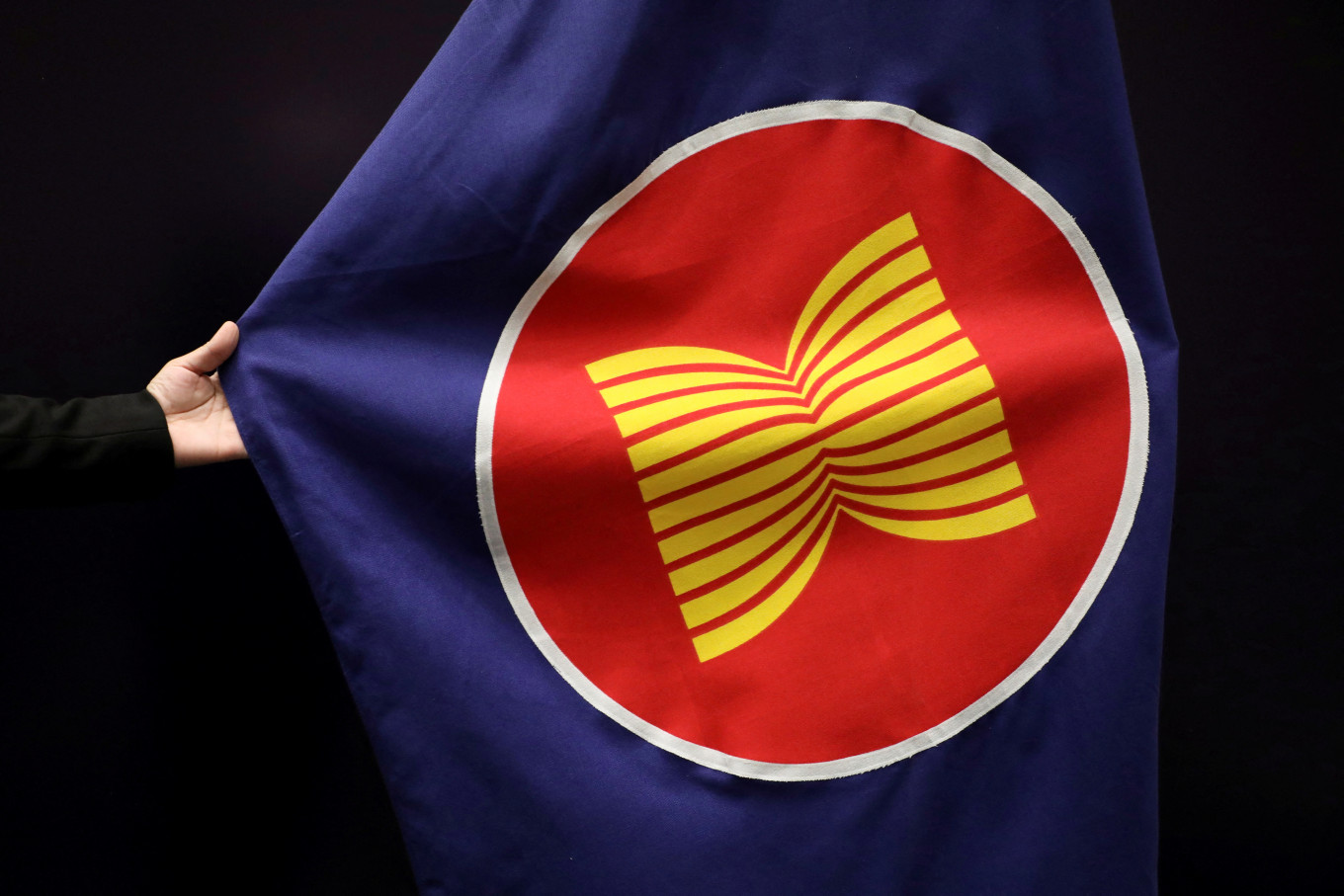Popular Reads
Top Results
Can't find what you're looking for?
View all search resultsPopular Reads
Top Results
Can't find what you're looking for?
View all search resultsMyanmar may have highlighted differences, but ASEAN still united: Experts
Though it has been posited that the Myanmar crisis has caused a rift in the regional grouping, at least two experts refute this premise, saying that working through differing views toward consensus is actually the ASEAN way.
Change text size
Gift Premium Articles
to Anyone
T
he Myanmar crisis may have accentuated differences between ASEAN member states and will be one of Indonesia’s most pressing challenges during its chairmanship, experts have said.
But they also suggested there was still reason to remain hopeful, underlining that differing opinions and divergent governance had always been characteristic of the 10-member bloc. As such, disagreements over conflict resolution were neither unprecedented nor impossible to overcome.
“Conflicting opinions within the ASEAN landscape are not new. [...] But it is a challenge. It will always be,” Dewi Fortuna Anwar, senior ASEAN researcher at the National Research and Innovation Agency (BRIN), told The Jakarta Post.
On Dec. 22, foreign ministers from Myanmar, Thailand, Cambodia, Vietnam and Laos met informally in Bangkok to discuss progress on the Five-Point Consensus, ASEAN’s peace plan for Myanmar.
While maritime states like Indonesia and Malaysia were inconspicuously absent from the meeting, which the Indonesian Foreign Ministry told reporters was “informal” and not representative of ASEAN, some media reported this as a sign of an increasingly divided organization.
A week later, Malaysian Foreign Minister Zambry Abdul Kadir said although the informal meeting might cause misunderstanding, ASEAN could not force any party to terminate their relationship or engagement with Myanmar.
“Any attempts at resolving the Myanmar crisis should be based on the 5PC,” he asserted, referring to the bloc’s Myanmar strategy. “They cannot go beyond it.” Zambry added that he remained unaware of the details discussed at the Bangkok meeting.
Dafri Agussalim, an international relations expert at Gadjah Mada University (UGM), said that recent developments clearly indicated that ASEAN was “not in a good place”, and that an internal fracture would be difficult for Indonesia to overcome unless it decided to take a novel approach.
After all, he said, ASEAN was still struggling with its goals of centrality and establishing a collective identity.
“The Myanmar coup d’etat has emphasized ASEAN’s current state. If we look at the barometers of solidarity and cohesiveness, the bloc is not doing well. Realist thinking is still rampant in some [member states], and self-interest continues to be prioritized ahead of collective needs,” Dafri told the Post.
A divided 'house'?
The premise that the Myanmar crisis has broken ASEAN into two blocs, with the five Mekong River countries on one side and the maritime nations on the other, has been debated since the beginning of last year.
For instance, ASEAN Parliamentarians for Human Rights (APHR) chairman Charles Santiago told Voice of America in February 2022 that the divide was “very real”, and that some mainland members were “working with Myanmar directly or indirectly”.
But Dewi argued that ASEAN was more united than divided, as its critics claimed, refuting the idea that any recent development had jeopardized the bloc’s integrity. She also pointed out that, against the common assumption that its mainland members were traditionally similar in their views, events such as the Cambodian conflict of 1967-1975 had proved otherwise.
“The bond between the [mainland] countries is not historical. Historically, they have been in many conflicts. Maybe the only similarity is that they do not care much for democracy and human rights,” Dewi suggested.
“ASEAN is an association, not a union. It is not a supranational bond. Differing views and approaches should not be shocking, they are only to be expected,” she stressed.
Without understating the challenges brought about by such differences, Dewi urged that ASEAN be viewed through an objective lens. She also said Indonesia’s chairmanship should not be deemed dead on arrival, as it was still reasonable at this juncture to hope that Jakarta could prove its critics wrong.
Though the Foreign Ministry has not issued any formal statement in response to the December meeting in Thailand or disclosed any strategies the Indonesian chairmanship intended to pursue, these matters were expected to be addressed in the annual speech by Foreign Minister Retno L.P. Marsudi next Wednesday.
All in due time
That some ASEAN states had engaged with Myanmar outside of the bloc was not necessarily a cause for concern, Dewi said. After all, expelling Myanmar from the bloc was never an option.
“We can take the perspective that the mainland countries are deploying all means of open communication. A complete shutout would reduce Indonesia’s leverage with regard to the junta, which would be ineffective,” she said.
Despite still believing there were “egocentric” reasons for informal engagements, UGM’s Dafri echoed Dewi’s views, saying that Indonesia might still have a shot at resolving the Myanmar crisis through creative and informal means. Even so, he stressed, any success or failure could only be fully assessed years after its chairmanship had ended.
“If Indonesia is willing to depart from the ASEAN nature of consensus and formal engagement, then I think it can achieve a lot. Success does not have to be measured through joint statements or other diplomatic norms,” Dafri said.
“But it is also important to note that in doing this, ASEAN will need a strong leadership figure. [President Joko “Jokowi” Widodo] can be that figure, but the political year has just started. It will be difficult to hope that he will prioritize this issue,” he added.










